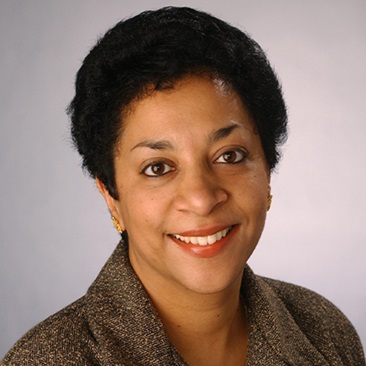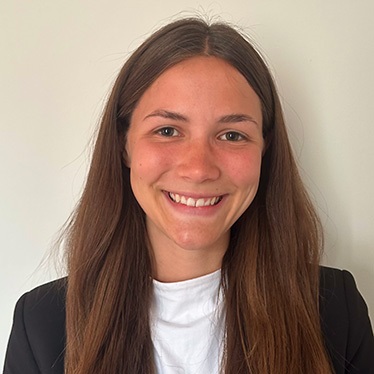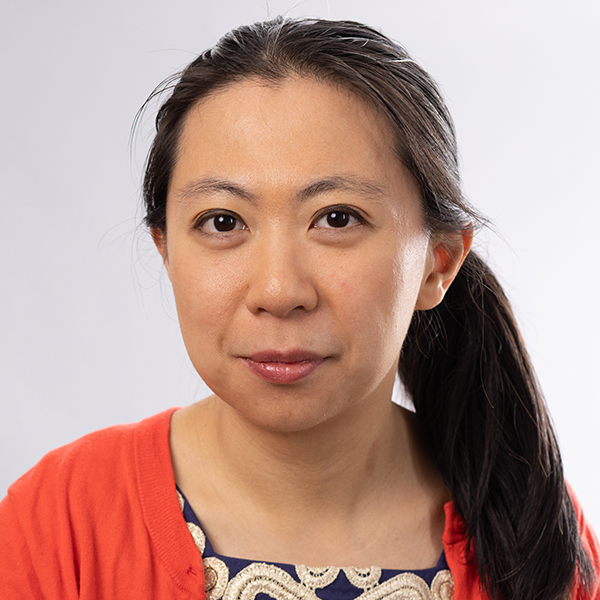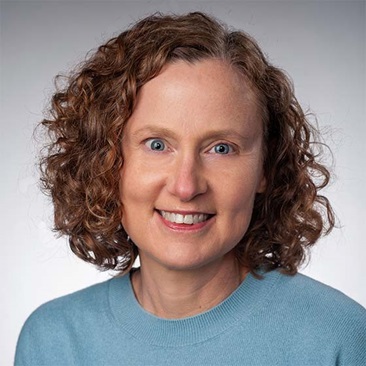full-time faculty teaching and conducting research in political science
of Maxwell faculty conduct research focused outside of the U.S.
graduate students in residence; fewer than 12 admitted each year
Undergraduate Studies
Graduate Studies

I am Maxwell.
Civic engagement is a core value for me. I have always aspired to help the communities I’m from.” Mazaher Kaila, a Maxwell alumna and third-year student at Syracuse University's College of Law, moved with her family from Sudan to Central New York when she was four years old. “I realized that to make meaningful change in society, I needed to understand the systems that power it—government and politics—and that’s insight I would gain by studying political science.”
Mazaher Kaila ’19, L’22
political science, law
From Sovereignty to Mortality: Tenth Decade Awards Support Research Across Disciplines
May 15, 2024
The Tenth Decade Project was developed 10 years ago in the lead-up to the Maxwell School’s 100th anniversary in 2024. Funded by gifts from hundreds of individual donors, including a lead gift from long-time Maxwell supporters Gerry and Daphna Cramer, the project has since awarded funds for dozens of faculty-led projects that have explored topics related to citizenship—from labor policy to free speech jurisprudence to climate change.
Below is a sampling of some of the projects across disciplines that have been supported by Tenth Decade awards in recent years.
Challenges to Sovereignty, Order and Conflict: Multidisciplinary Working Group
Directed by political science professor Ryan Griffiths, this Tenth Decade project was designed as a springboard for research on topics such as crime syndicates, global black spots, cyber terrorism, illicit trade, ethno-political violence, civil war and post-conflict reconstruction. With support from a $25,000 Tenth Decade grant, the group ran a three-year speaker series spanning the social sciences that concluded in June 2022 with a workshop at Syracuse University's Minnowbrook Conference Center on the topic of rebel governance. That workshop also yielded a special issue for the journal International Politics, to be published later this year, with articles by Griffiths as well as by political science graduate students Heidi Stallman, Falak Nur Hadi and Mansour AlMuaili.
Race, Risks, and Responses: Mapping Black Americans’ Responses to Group Threat
Political science professor Jenn Jackson led this investigation into how young Black Americans experience threats—especially policing—differently based on variations in their social location and orientation to power. The project received a $20,000 Tenth Decade grant as part of a call to support research and initiatives that confront systemic racial inequality. In the initial research, Jackson conducted 50 interviews with young Black Americans in the Chicago area, and they then followed with a national survey to further generalize these findings across racial groups. The grant funded an additional 50 interviews in 10 other cities, including Philadelphia, Boston, Baltimore, New York, Syracuse, Houston, Atlanta, Los Angeles, Oakland and Washington, D.C. This work has resulted in Jackson’s manuscript “Policing Blackness: The Political Stakes of Racial Trauma,” currently under publisher review.
Citizenship Across Borders: An International Conference
This project emerged in response to the global refugee crisis and backlash against immigration, and it convened scholars for a conference considering the history, politics and laws of citizenship within and across borders. Directed by Carol Faulkner, professor of history and Maxwell’s senior associate dean for academic affairs, and Samim Akgönül, a professor at the University of Strasbourg and an instructor for the Syracuse Abroad Center in Strasbourg, France, where the Citizenship Across Borders conference was held in the fall of 2022. A $16,000 Tenth Decade grant supported the event. Panel topics included naturalization law; the language, literature and perceptions of citizenship; and challenges of immigration between Africa, the Middle East and Europe. Conference participants included Maxwell faculty members Seth Jolly in political science, Azra Hromadžić in anthropology, Amy Lutz in sociology and Chris Kyle in history.
The Impact of State Laws and Policies on the Developmental Disability Mortality Disadvantage: Creating a Comprehensive Database to Allow for Multi-Level Analysis
The first goal of this two-year project, awarded a $33,420 Tenth Decade grant, was to build and share data on state-level intellectual and developmental disability (IDD) mortality patterns by demographic characteristic. The project team, led by Scott Landes, associate professor of sociology and a faculty associate in the Aging Studies Institute (ASI), completed the database in 2020. Once the database of IDD mortality patterns was in place, Landes and his collaborators, including Janet Wilmoth, professor of sociology and ASI director, and Katherine McDonald, associate dean of research and professor of public health in Falk College, published their first study on race-ethnic disparities in mortality among adults with and without IDD. Last year the Population Reference Bureau, a nonpartisan research organization based in Washington, D.C., released a report based on the data focusing on the impact of COVID-19. While U.S. adults with IDD are living longer, the report found, COVID-19 threatened to erase this progress.
By Jeffrey Pepper Rodgers
Published in the Spring 2024 issue of the Maxwell Perspective
Related News
School News

Jul 29, 2024
School News

Jun 21, 2024
BaoBao Zhang Joins First Cohort of AI2050 Early Career Fellows
One of only 15 scholars chosen from across the U.S., Zhang will receive up to $200,000 in research funding over the next two years. Zhang will use the funding to partner with the nonprofit, non-partisan Center for New Democratic Processes to test whether public participation in AI governance is increased through the creation of public assemblies, known as “deliberative democracy workshops.”
Baobao Zhang
Assistant Professor, Political Science Department

From Sovereignty to Mortality: Tenth Decade Awards Support Research Across Disciplines
May 15, 2024
The Tenth Decade Project was developed 10 years ago in the lead-up to the Maxwell School’s 100th anniversary in 2024. Funded by gifts from hundreds of individual donors, including a lead gift from long-time Maxwell supporters Gerry and Daphna Cramer, the project has since awarded funds for dozens of faculty-led projects that have explored topics related to citizenship—from labor policy to free speech jurisprudence to climate change.
Below is a sampling of some of the projects across disciplines that have been supported by Tenth Decade awards in recent years.
Challenges to Sovereignty, Order and Conflict: Multidisciplinary Working Group
Directed by political science professor Ryan Griffiths, this Tenth Decade project was designed as a springboard for research on topics such as crime syndicates, global black spots, cyber terrorism, illicit trade, ethno-political violence, civil war and post-conflict reconstruction. With support from a $25,000 Tenth Decade grant, the group ran a three-year speaker series spanning the social sciences that concluded in June 2022 with a workshop at Syracuse University's Minnowbrook Conference Center on the topic of rebel governance. That workshop also yielded a special issue for the journal International Politics, to be published later this year, with articles by Griffiths as well as by political science graduate students Heidi Stallman, Falak Nur Hadi and Mansour AlMuaili.
Race, Risks, and Responses: Mapping Black Americans’ Responses to Group Threat
Political science professor Jenn Jackson led this investigation into how young Black Americans experience threats—especially policing—differently based on variations in their social location and orientation to power. The project received a $20,000 Tenth Decade grant as part of a call to support research and initiatives that confront systemic racial inequality. In the initial research, Jackson conducted 50 interviews with young Black Americans in the Chicago area, and they then followed with a national survey to further generalize these findings across racial groups. The grant funded an additional 50 interviews in 10 other cities, including Philadelphia, Boston, Baltimore, New York, Syracuse, Houston, Atlanta, Los Angeles, Oakland and Washington, D.C. This work has resulted in Jackson’s manuscript “Policing Blackness: The Political Stakes of Racial Trauma,” currently under publisher review.
Citizenship Across Borders: An International Conference
This project emerged in response to the global refugee crisis and backlash against immigration, and it convened scholars for a conference considering the history, politics and laws of citizenship within and across borders. Directed by Carol Faulkner, professor of history and Maxwell’s senior associate dean for academic affairs, and Samim Akgönül, a professor at the University of Strasbourg and an instructor for the Syracuse Abroad Center in Strasbourg, France, where the Citizenship Across Borders conference was held in the fall of 2022. A $16,000 Tenth Decade grant supported the event. Panel topics included naturalization law; the language, literature and perceptions of citizenship; and challenges of immigration between Africa, the Middle East and Europe. Conference participants included Maxwell faculty members Seth Jolly in political science, Azra Hromadžić in anthropology, Amy Lutz in sociology and Chris Kyle in history.
The Impact of State Laws and Policies on the Developmental Disability Mortality Disadvantage: Creating a Comprehensive Database to Allow for Multi-Level Analysis
The first goal of this two-year project, awarded a $33,420 Tenth Decade grant, was to build and share data on state-level intellectual and developmental disability (IDD) mortality patterns by demographic characteristic. The project team, led by Scott Landes, associate professor of sociology and a faculty associate in the Aging Studies Institute (ASI), completed the database in 2020. Once the database of IDD mortality patterns was in place, Landes and his collaborators, including Janet Wilmoth, professor of sociology and ASI director, and Katherine McDonald, associate dean of research and professor of public health in Falk College, published their first study on race-ethnic disparities in mortality among adults with and without IDD. Last year the Population Reference Bureau, a nonpartisan research organization based in Washington, D.C., released a report based on the data focusing on the impact of COVID-19. While U.S. adults with IDD are living longer, the report found, COVID-19 threatened to erase this progress.
By Jeffrey Pepper Rodgers
Published in the Spring 2024 issue of the Maxwell Perspective
Related News
School News

Jul 29, 2024
School News

Jun 21, 2024





